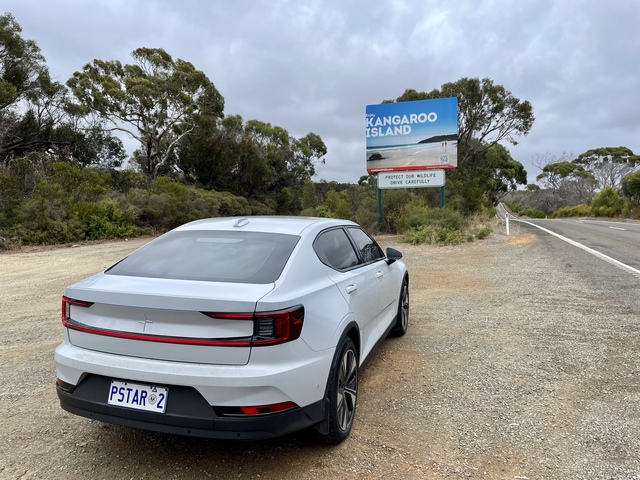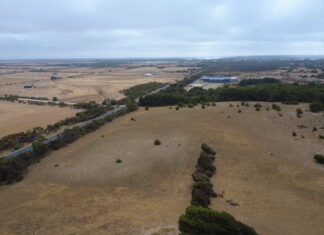RAA is calling on the federal government to tackle one of the biggest revenue problems in the country – replacing the fuel excise to ensure Australia’s road network can be funded into the future.
South Australia’s peak motoring body is committed to the electric transition, and says tax reform is badly needed, urging a bipartisan politician approach.
The Electric Vehicle Council meanwhile reported that 2023 was another landmark year for electric transport in Australia with rapid growth in both EV sales and charging infrastructure.
Electric vehicle sales. Including battery EVs and plug-in hybrids, grew by 120 per cent and the total Australian EV fleet surpassed 180,000 electric vehicles.
Charging infrastructure locations increased by 75 per cent over the previous year, with 348 locations added across Australia.
The Climate Council meanwhile says a clear majority of Australians want cleaner cars that are cheaper to run, to help cut climate pollution and the cost of living.
The national poll from the Climate Council found 80 per cent of participants reported feeling squeezed by high and rising petrol bills.
As debate swirls about the Federal Government’s Fuel Efficiency Standards and the targets for Australia to transition to low emissions vehicles, RAA is renewing calls for governments and policy makers not to lose sight of the bigger picture.
RAA chief executive officer Nick Reade said tax reform is required to ensure all motorists were paying their fair share to help fund our road network into the future.
“With or without a target, the wave of EVs hitting our shores is bringing with it a significant revenue problem the federal government must address,” Mr Reade said.
“A large portion of our infrastructure funding in Australia comes from the fuel excise, which is effectively 49.6-cent tax motorists pay per litre of petrol or diesel.
“As more EVs hit our roads and the number of petrol and diesel vehicles decrease – we’re going to have a crack in the nation’s road funding model.”
Mr Reade said South Australia already had a $2 billion road maintenance backlog.
“Make no mistake, you’ll find no bigger advocate for EVs than RAA,” he said.
We’re rolling out the RAA Charge network to solve range anxiety in SA, upskilling our patrols to service EVs and helping educate our approved repairer network about the opportunities EVs present, and to increase options for EV drivers.
RAA is here to support our members, no matter what vehicle they choose to drive.”
Mr Reade said Australia needed a bi-partisan approach to developing a sustainable funding model for the country’s roads – many of which are already in need of urgent repair.
“There’s a lot of debate about the ‘target’ at the moment, but we’re all in agreement that EVs are coming,” Mr Reade said.
“Whether it’s 2025, 2030, or even further into the future – eventually petrol and diesel vehicles will make up less and less of the cars on our roads – and at the moment, they’re the only ones paying to maintain them.
“Some research predicts traditional petrol and diesel vehicle sales will fall to less than 25 per cent of all new cars sold in Australia by 2030 – the rest will be either hybrids or battery electric, which will pay much less or no fuel excise at all.
“That means the $15 billion in revenue we generate from the fuel excise each year will plummet.
“RAA is calling on the federal government to convene a roundtable, along with industry, to form a bi-partisan approach that will be needed to tackle one of the biggest revenue problems in the country.”
Victoria’s road user charge was found to be unconstitutional and thrown out by the High Court, so a bi-partisan national approach was the only way to ensure a sustainable and long-term funding model, he said.
The Electric Vehicle Council meanwhile found that 2023 was another landmark year for electric transport in Australia with rapid growth in both EV sales and charging infrastructure.
The Australian Electric Vehicle Industry Recap 2023, released on March 15 by the council, contains details on the top 20 EV models sold, an update on how Australia is tracking against the EVC’s recommended target of 1 million EVs by end of 2027, and the launch of a national EV ownership survey in collaboration with the University of Sydney.
The Recap also included analysis of media claims about a slowdown in EV sales in the US, which the report finds has been vastly overstated.
“Most of the commentary about a slowdown in the US has come from those with an interest in talking down the growth of EVs, when the reality is electric car sales are still going strong in America,” EVC chief executive Behyad Jafari said.
Growth in EVs between 2021 and 2022 in the US was 66 per cent while in the most recent year it was 46 per cent, still extraordinary annual growth in any market, he said.
Mr Jafari said extending the benefits of EVs to a broader cohort of Australians would require ongoing policy reform.
“After a long period of anticipation last decade, it’s now genuinely exciting to see the electric vehicle revolution now rolling out all over Australia,” Mr Jafari said.
“EV drivers are everywhere and if you talk to them they’re typically effusive about their decision.
“Not having to worry about petrol prices or regular maintenance, and enjoying a more fun driving experience tend to top the reasons given for satisfaction.
“And our cities and towns are benefiting with less and less air and noise pollution.
“To sustain this positive trajectory we need sensible reform.
“The federal government’s New Vehicle Efficiency Standards are a crucial step that finally brings Australia into line with the rest of the developed world.
“This move will see Australian drivers finally being given the same kind of choice offered to Americans and Europeans.
“EVs are no longer a novelty, they are a core part of everyday Australian lives. “Hopefully the abundant benefits of switching to an EV will be embraced by millions more Australians as the decade progresses.”
New polling from the Climate Council showed a clear majority of Australians wanted cleaner cars that were cheaper to run.
At the same time, 74 per cent also said cutting pollution from cars was important for tackling climate change.
With fuel bills and climate pollution on the rise, two in three Australians agreed they deserve access to the same cleaner, more efficient cars that are already being sold overseas.
Climate Council head of advocacy, Dr Jennifer Rayner said it’s clear Aussies wanted the New Vehicle Efficiency Standard to unlock Australia’s car market and get them the road to savings.
“We’ve heard a lot of self-interested talk lately from multinational car brands about what Aussies want to drive,” she said.
“The answer couldn’t be clearer: the majority of Australians want cars that are cheaper to run and don’t pollute our air and climate.
“The big brands aren’t bringing cleaner, cheaper cars to Australia right now, even though they’re already selling them in the millions overseas.
“An effective New Vehicle Efficiency Standard can change that.
“Australians understand our dirty cars are costing us, and our environment, far too much.
“Mums and dads are particularly feeling the pinch of high petrol prices, and they’re worried about the risks of escalating climate change for their kids.
“Cleaning up our cars is a practical solution on both fronts, and Aussies know it. That’s why a majority supports this standard.
“The federal government should listen to what Australians want and deliver the New Vehicle Efficiency Standard as soon as possible.
“Big car brands trying to block it are speaking only for themselves, not for our community.”









